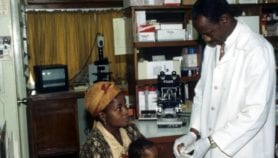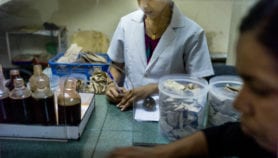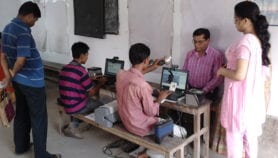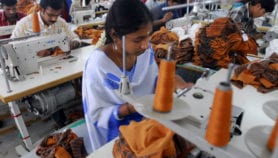By: M. Sreelata
Send to a friend
The details you provide on this page will not be used to send unsolicited email, and will not be sold to a 3rd party. See privacy policy.
[NEW DELHI] The insignificant size of penalties awarded this month (1 January) against doctors involved in irregular clinical trials has refuelled a national debate on how to protect volunteers recruited to take part in this growing industry.
News that there might be something amiss with the trials first emerged in June 2010, when questions were raised about studies conducted in the previous five years in the central Indian state of Madhya Pradesh by 78 doctors, some from publicly-funded government hospitals and some private practitioners.
The state government responded to queries by health activists under India’s Right to Information Act.
It is alleged that that drugs and some herbal treatments were tested on patients from vulnerable groups including the mentally challenged and children, and it is unclear whether the ethics committees that scrutinised the trials had ascertained whether it was essential to include them or what safeguards were needed.
Participants did not give informed consent, it is alleged; proper records were not maintained and the relevant state departments were not informed.
Following a probe, the state government upheld some allegations and fined 12 government doctors 5,000 Indian rupees (US$99) under a state nursing homes act. Private doctors were not fined as the act does not cover them.
India is emerging as a global clinical trials hub. A 2009 report by the international consultancy Ernst and Young, and the Federation of Indian Chambers of Commerce and Industry estimated the country’s clinical trials market at more than US$300 million, growing at 30 per cent per year.
Last November, the Central Drugs Standard Control Organization (DCGI), which falls under India’s health ministry, published draft amendments to its Drugs and Cosmetics Act, to make compensation mandatory in the case of a patient’s death or injury during clinical trials.
Although the proposed amendments have been welcomed, health activists, policymakers and clinical trials industry representatives have questioned whether ethics committees should be setting compensation levels, as is proposed.
N Sarojini, of the Delhi-based nongovernmental organisation Sama Resource Group for Women and Health, told SciDev.Net that "at present there are no clear guidelines as to how these ethics committees are to be constituted and who monitors them. Members of the ethics committees also conduct trials and hence there is conflict of interest."
Ethics committees are often dominated by large firms who sponsor the trials and not by hospitals, she added.
Sandhya Srinivasan, executive editor of the Indian Journal of Medical Ethics, and member of the editorial board of Developing World Bioethics, noted in a 2009 studythat there was no central registry of ethics committee decisions in India and, if a protocol was rejected by a local ethics committee, it could be submitted to another ethics committee without mention of the previous failure.
Furthermore, the study said, the DCGI was not equipped to monitor existing clinical trials in India.
The government paid out compensation for 22 trial-related deaths in 2010, according to a statement made by India’s health minister Ghulam Nabi Azad last August.













